Postponing Motherhood… at What Cost?
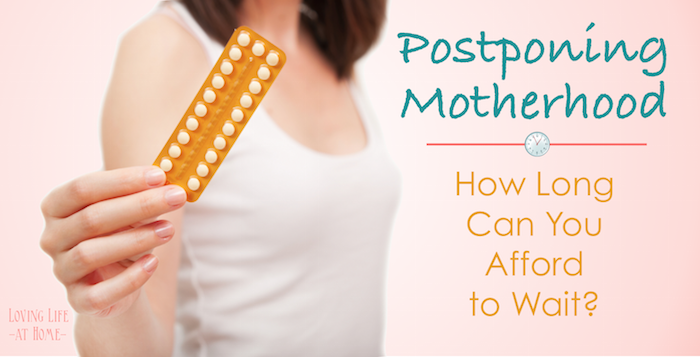
These days, more and more young married women are purposefully postponing motherhood. And hormonal contraceptives make it easier than ever to do so. But far too few of them ask one important question: At what cost?
Back when my husband was in medical school, his pharmacology textbook listed seven full pages of adverse side effects associated with oral contraceptive use, including:
- heart attacks
- strokes
- liver tumors
- blood clots
- gall bladder disease
- migraine headaches
- depression
- loss of vision
- urinary tract infections
- yeast infections
- weight gain
- thyroid problems
- high blood sugar
… and myriad more, as well as an increased risk of infertility, miscarriage, and birth defects even after discontinuing use of the Pill.
That was enough to convince us we’d made the right decision when, as newlyweds, we opted to forgo hormonal contraceptives three years (and two babies) earlier.
Yet when we shared this information with family and friends, they remained skeptical. “If the Pill were really that unsafe,” they reasoned, “then doctors wouldn’t prescribe it.”
Fast forward 25 years, and we’re still having those same discussions. That’s why my husband recently bought me a copy of Sweetening the Pill: How We Got Hooked on Hormonal Birth Control.
The author, Holly Grigg-Spall, writes from an ultra-liberal, pro-abortion, anti-Christian, doctor-bashing, communist-sympathizing, sexually-licentious radical feminist perspective.
In other words, she is my ideological opposite.
Yet on one point we can emphatically agree: that there are compelling reasons to reject hormonal contraceptives that have nothing to do with religion.
I found the book refreshing (despite the author’s rather one-dimensional representation of folks — like me — who do not share her political agenda).
It asks questions that desperately need to be asked, discussed, and answered. Plus, it’s chock full of interesting (and ofttimes harrowing) statistics:
- “Today eighty percent of women will take the birth control pill at some point during their lifetimes.” (p.25)
- In the US, half of all women under the age of 25 are currently using the Pill. (p.26)
- The Pill significantly lowers a woman’s libido — sometimes irreversibly so, since “the impact on testosterone levels is permanent.” (p. 50)
- Using hormonal contraceptives greatly increases a woman’s risk for developing many life-threatening conditions, including heart disease and breast, cervical, and liver cancers. (p. 60)
- “Recent research shows that if a woman starts taking the Pill before she turns twenty her risk of developing breast cancer in later life is doubled.” (p. 60)
- Birth control pills represent “a $22 billion a year industry with approximately sixty brands on the market.” (pp. 112-113)
Interestingly, Grigg-Spall and some of the authors she quotes have run into the same argument my husband and I heard when he was in med school: People (mistakenly) believe the FDA wouldn’t have approved hormonal contraceptives if they weren’t safe.
She answers that objection by pointing to the money trail. In her mind, the Pill is a conspiracy to pad the pockets of physicians and pharmaceutical companies, to keep women in the workforce, and to bolster our consumer-driven economy.
Granted, some of those factors probably do come into play. But I don’t think you can fully understand our society’s unhealthy addiction to birth control without taking into account its general prejudice against children and aversion to “unplanned” pregnancies.
Consider this: Cancer patients routinely submit to chemotherapy, despite the fact it saps their strength, leaves them nauseous, and makes their hair fall out. They do so because they consider the alternative (letting the cancer grow unchecked until it kills them) completely unacceptable. In the same way, our society is willing to assume the high risks associated with hormonal contraceptives, because the alternative (conceiving and carrying a baby until it is time to deliver) is seen as something to be avoided at all costs.
These days, an unplanned pregnancy is about as welcome as a cancer diagnosis. As long as this is our attitude toward babies, doctors will continue to prescribe the Pill, and women will continue to take it, regardless of the risks.
Interested in reading more on this topic? Check out these books, all of which I highly recommend:
- Adam and Eve After the Pill by Mary Eberstadt
- Start Your Family: Inspiration for Having Babies by Candice Watters
- Be Fruitful and Multiply: What the Bible Says about Having Children by Nancy Campbell
- Open Embrace: A Protestant Couple Rethinks Contraception by Sam and Bethany Torode
- Three Decades of Fertility: Ten Ordinary Women Surrender to the Creator and Embrace Life by Natalie A Klejwa, et al.
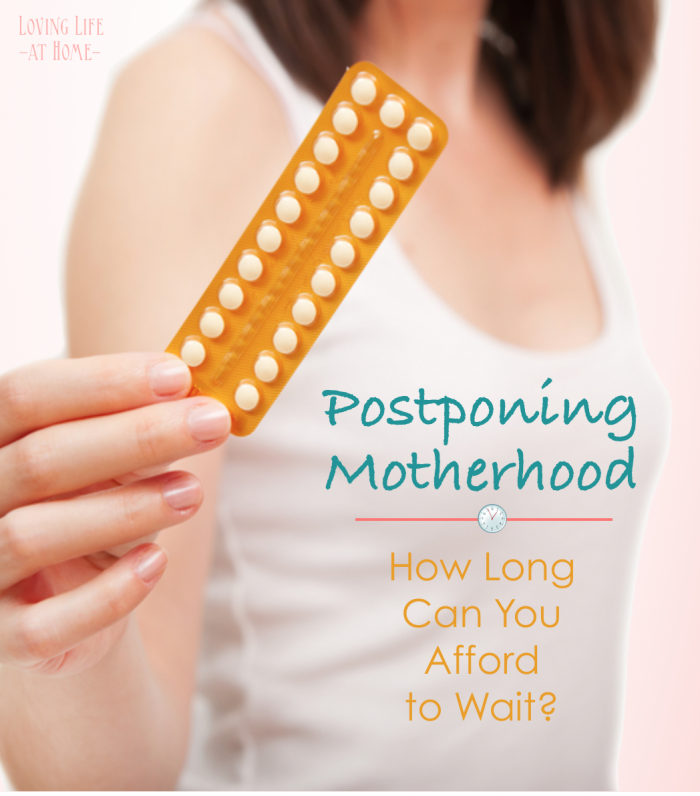
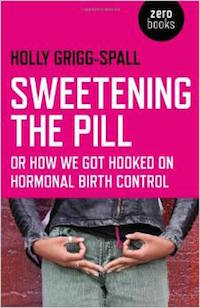
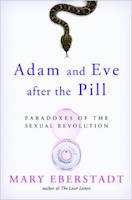
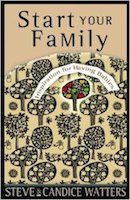
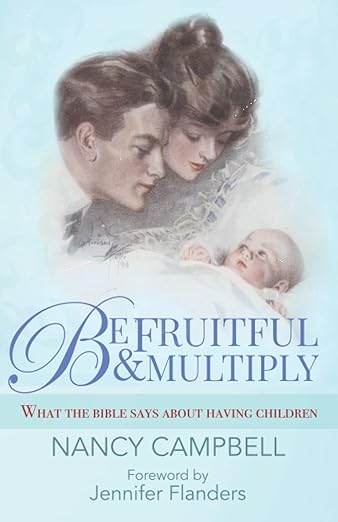

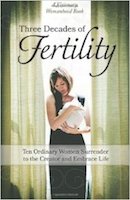

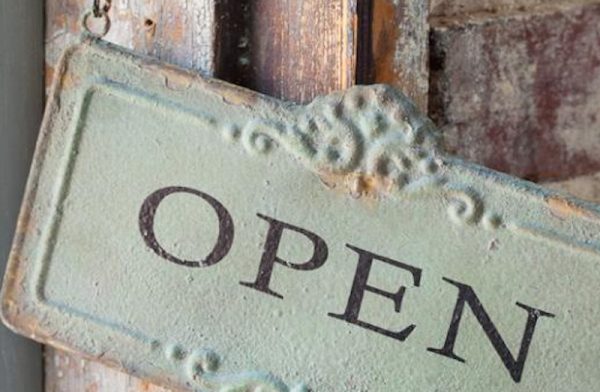


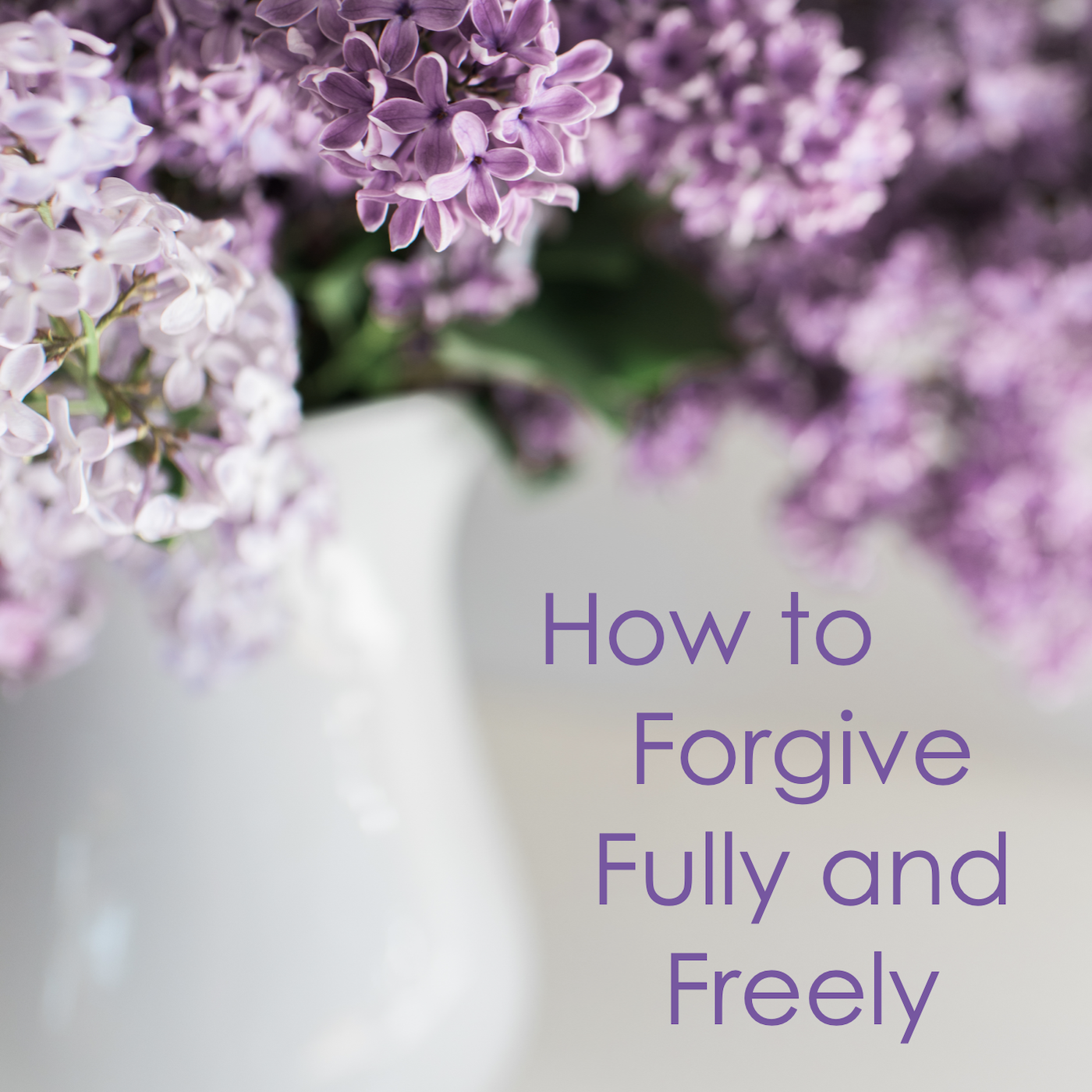
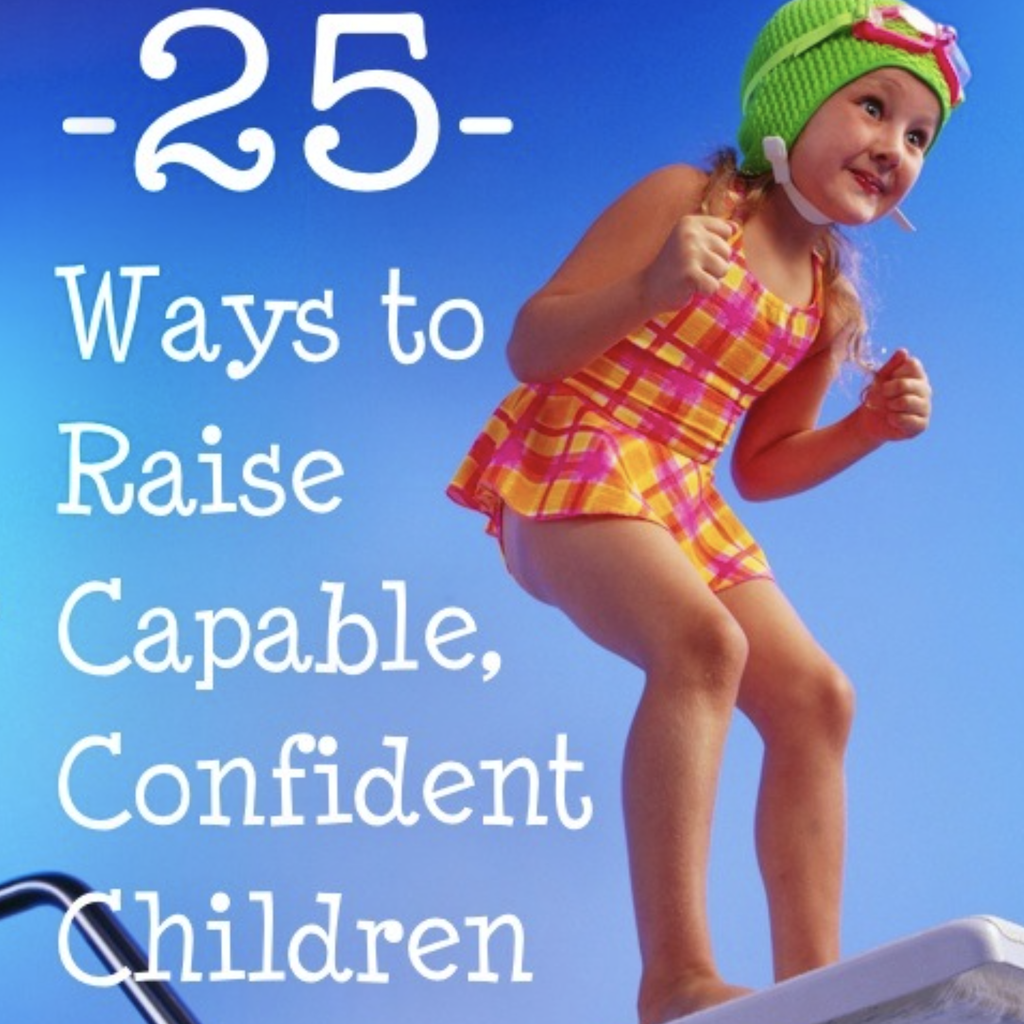
@Anna, Edvard Grieg was one of five children and his mother was his first piano teacher at age 6. In fact most of the masters of culture from antiquity, were from large families and they didn’t need “financial stability” to have a lasting impact on the world. This to say, that the reasoning that to raise a cultured child today, one ought to have only one or a few, is flawed and there are normally other underlying reasons for that choice that people don’t want to admit even to themselves.
I was prescribed the pill at sixteen by an FNP without my parents present and don’t feel I was properly educated at the time about long-term effects. I took it faithfully for five years and was able to conceive twins within my first natural cycle after the pill. I wanted to stay off of hormonal contraceptives forever, but the twin experience and severe PPD after scared me enough to go back on for another five years. We conceived my son (praise God) within my first natural cycle again. But now I’m almost thirty, have spent a decade on hormonal birth control, and have no idea what my natural cycle looks or feels like because it’s been artificially regulated for so long. When reading about the risks of the pill, I was most concerned about the potential impact on long-term fertility—thank goodness this doesn’t seem to be an issue for me. But I feel kind of foolish for putting a substance in my body for that long just because someone suggested it to me when I was a child and for no other reason than convenience (I had no medical need for the pill). I hope time will show that no serious damage has been done, but we just have to wait and see.
That’s pretty scary to think about minors being given prescription drugs without parental knowledge or consent. I’m thankful you had an easy time getting pregnant both times you were ready to try, Abbie. Hopefully, getting off the Pill now will allow you to sidestep the other health problems associated with hormonal contraceptive use, as well. 🙂
The only downside of the pill that I experienced, and it’s one that you don’t mention, was loss of libido. This is why I never went back on it after my second (last) child was born. As for fertility, I had my babies at 33 and 37 and became pregnant during my first cycle trying. So, these are just statistics and say nothing about many women’s reality.
You’re right, Angela, on both counts. The Pill does squash libido for many users, and statistics can’t predict what will happen in individual cases, only communicate past trends over a large population.
I commented on your 5 books for women who think post asking what was wrong with oc and you sent me here. I’m a NP. Most medications have that laundry list of side effects. They have to be listed even if only one person had that side effect and it may or may not be related to the medication. Birth control pills also protect against ovarian cancer and reduce rates of breast cancer with those with BRCA1 and BRCA2 mutations. They are not only prescribed for those tumors we call babies, since you want to liken it to cancer, but they help regulate hormones in women who already have imbalances. Before birth control, I had extremely painful periods, heavy bleeding, mood swings, migraines with my periods, and acne. It can regulate women with PCOS. It can help with iron deficiency anemia as it reduces bleeding. Also, since your husband is a medical doctor you should know that we don’t get paid directly by big pharma. I don’t know where this thought process comes from, but I get paid whether I prescribe a medication or not. Also, the big reason here, were you aware that babies cost money? To deliver in my hospital I had to pay $5000 out of pocket. That’s not counting all the other stuff that goes with babies. Birth control pills are cheap or free. It is taxing on a woman’s body to have baby after baby. I had to have a c-section because of misaligned hips that wouldn’t allow her to descend, so I was recommended not to conceive for 18 months. I’m aware of natural family planning, but it’s not exactly as effective. Oh and let’s remember that some women already struggle with hormonal imbalances and are therefore more likely to struggle from postpartum depression. Let’s just have them have 5 babies in 6 years and be miserable then. You’ve argued your case above and if some impressionable person read that, they’d think oc were dangerous when in reality they are far more likely to be just fine. If your husband is an MD, you have decent money. You did not take into account people on the lower spectrum who don’t have the resources you have. One thing I learned in public speaking is to anticipate the counter argument and address it. You barely touched on it by talking about babies being a blessing. I know I’m not going to change your mind and that’s fine. You are entitled not to support it and I wouldn’t recommend it for anyone over 35 who smokes, but I don’t like that you are spreading information without the full picture.
You raise some good points, Nikki. Not everybody who takes hormonal contraceptives is doing so to prevent pregnancy, and taking medication of any kind entails risking unintended side effects — although some meds have far more serious and long-term health risks than others.
I have several female relatives who’ve experienced some of the more severe side effects of taking the Pill. That fact undoubtedly influenced the gravity with which I viewed those seven pages of known risks associated with hormonal contraceptives that my husband found in his pharmacology textbook so many years ago.
As stated in this article, even people who would disagree with me on every other issue, including the notion that children are a blessing, are alarmed by the dangers inherent in hormonal contraceptive use — hence the book written on this topic by a very left-leaning, doctor-bashing feminist.
Perhaps, if you need the Pill to regulate hormones, you’ll be forced to take your chances. But if you are merely seeking a way to prevent pregnancy, there are far safer methods available (namely any of the barrier methods or NFP).
The doses of contraceptives have changed dramatically from decades ago. I waited until my late 20’s to have a baby, and am glad I waited. Unlike my peers who started young and had many, my husband and I have a lot of financial stability, a large home, and so much more to offer our daughter. All the love in the world isn’t going to pay for a child to experience culture and travel. If someone wants to limit those things a child gets because they want another baby, well, that’s their choice as much as an abortion is their choice. For me? I love that my second-grader can identify Chopin versus Edvard Grieg. I love that she can tell you what La Boheme is about, and the opera Carmen. She can tell you if a paining is by Titian or DaVinci. She has her own favorite painter. If we have had a baby earlier, she wouldn’t have had these things. We used the years to get to a point of stability and to be able to provide wonderful experiences that have broadened her mind and exposed her to many different cultures.
My IUD keeps me from halfway bleeding to death each month, and no, another baby isn’t the solution. Contraceptives are.
Carmen is one of my favorites, too, Anna. I actually got to perform it on stage under the direction of Victor Borge years ago when I was singing with the Dallas Symphony Chorus. I’m glad you are happy with your choices, but I’d like to assure you that having siblings does not keep children from enjoying good music or beautiful artwork. Parents who are passionate about such things can pass on an appreciation for them to a dozen children as easily as they can to one.
Great post! It’s amazing how people with such vastly different political views can agree on this, but all the people in the middle don’t seem to. Lol. I hope books like this and the ones you recommended help get more people on board.
Hey! Just a opinion here…I agree wholeheartedly on the dangers of oral contraceptives…and the mistrust of “Federal” recommendations…but you failed to mention the safe and easy to use foam contraceptives that just use a spermicide….95-99% effective and safe when used correctly…for some who like to be married and get a budget and a life setup before having a baby right away 🙂 Love you guys!!!!